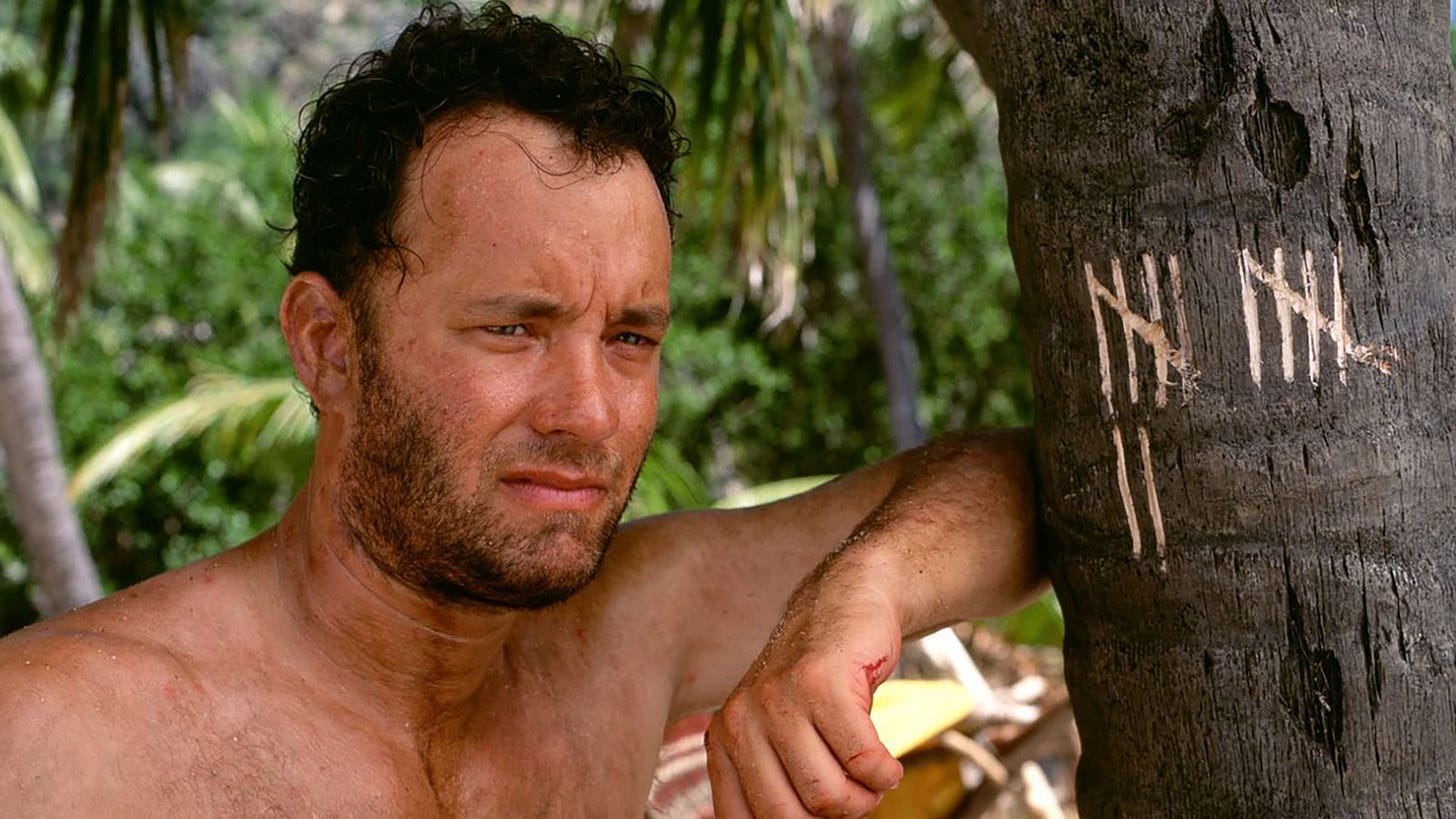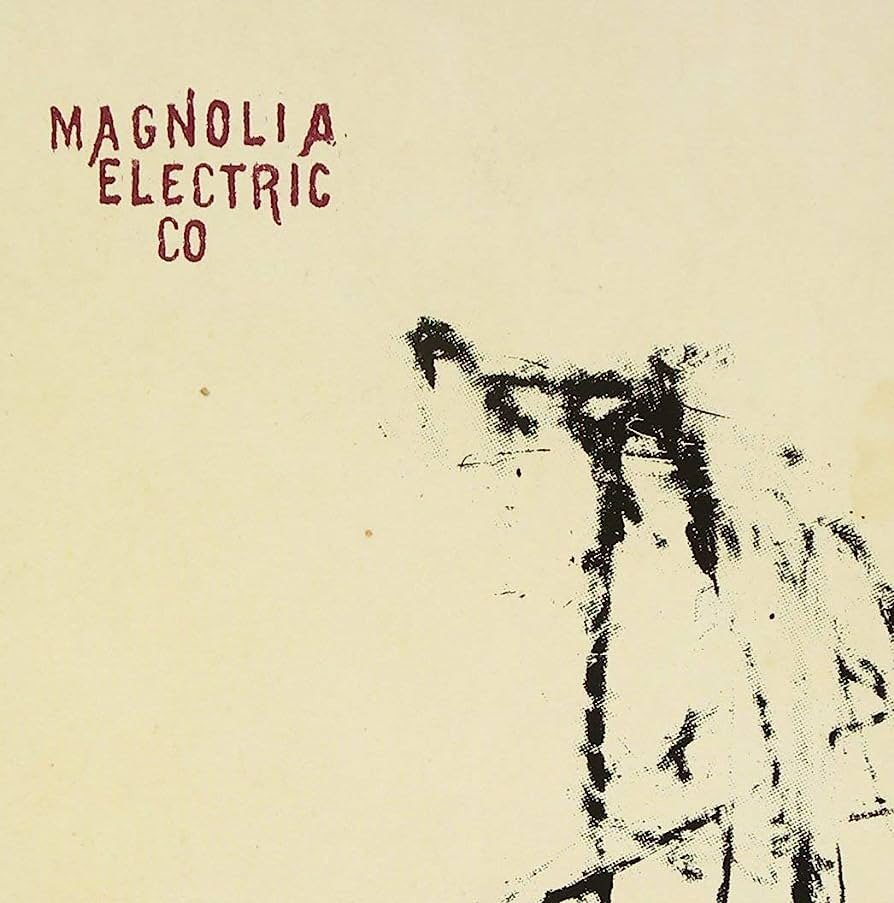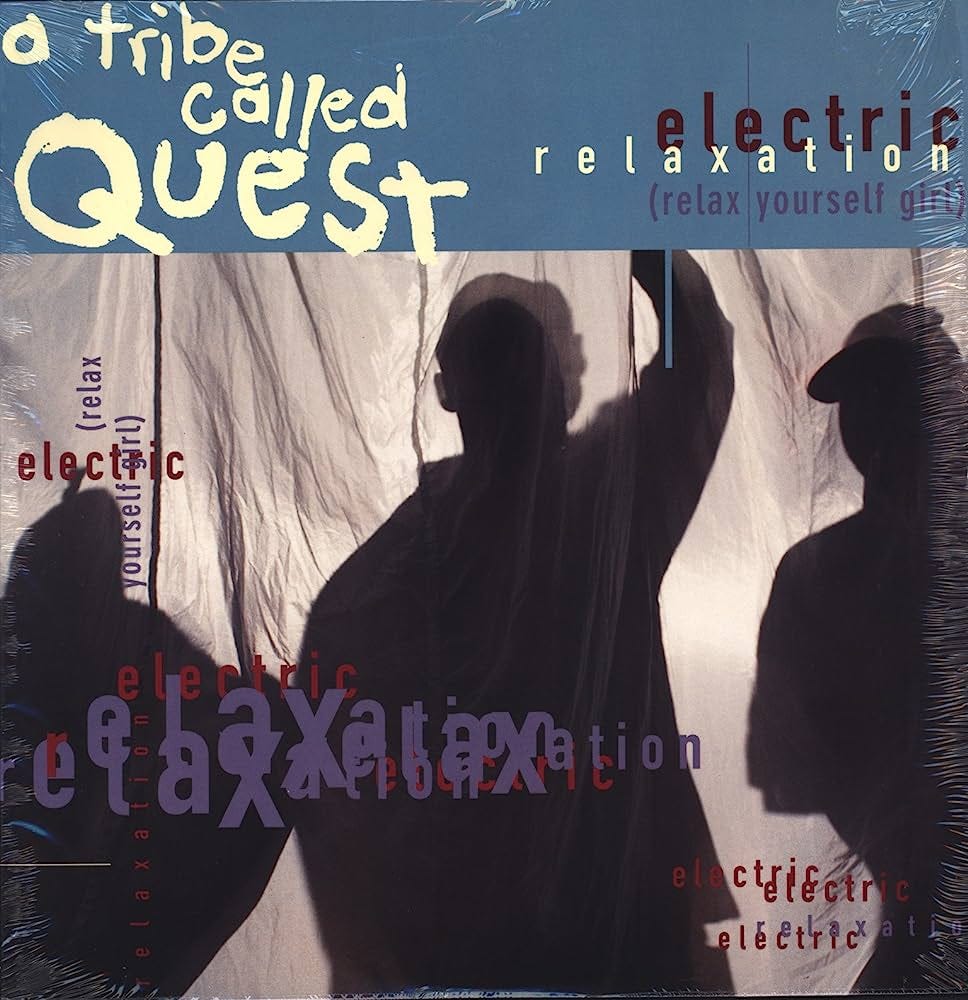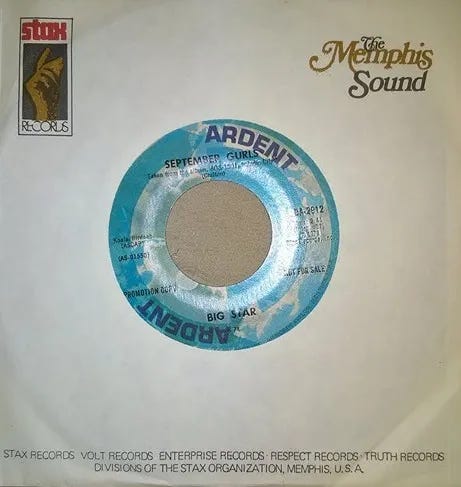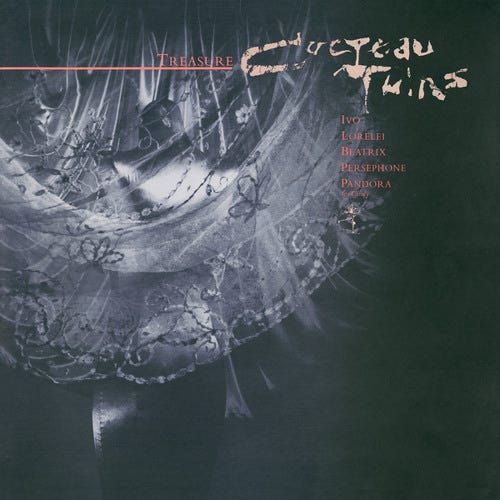I regret doing this now, but the idea seemed like fun at the time. You know, imagining which eight tracks I’d take to the BBC’s desert island. It would be a lark! A pleasant diversion! But not for the first time, I’ve underestimated my neurotic resistance to something that should’ve been light and easy. I’ve experienced a powerful rebellion against my own trivial conceit: How can I possibly limit my tastes, my loves, to just eight?
This self-imposed project of listing eight defining songs quickly revealed itself as vulgar, arbitrary, and irrationally frightening. Favourite songs or albums of the year is one thing — but of a lifetime?
But here we are. I now realise that, instead of the pleasurable honour I imagined it would be, if the BBC had ever asked me onto their show, I would’ve been hospitalised not long after I sat down to write my list. Severe psychic constipation would have followed, as my fevered attention lit upon all of the songs not included. And my recognising that none of this was important, that it was, in fact, exquisitely trivial, would have only spurred the aggressively recursive spirals of anxiety.
And so I’m glad I haven’t been invited.
But Part 2 was promised. I made my bed. And so, a final note: The one criteria I’ve applied to these eight songs is personal longevity. All of them first entered my ears a long time ago — at least twenty years, or close to it — and they’ve remained cherished. That was the only rule: that my love for them has been undimmed by decades.
And so, distortions follow — not least in the embarrassing gender imbalance. But the list remains true: a reflection of some of the songs that have stubbornly stuck with me for a long, long while, and not a list of songs that I think will reflect well upon me. Do I protest too much? Perhaps.
“The Dark Don’t Hide It” (live) Magnolia Electric Co. (2005)
Now the world was empty on the day when they made it
But heaven needed someplace to throw all the shit.
Human hearts and pain should never be separate
They wouldn’t tear themselves apart both trying to fit
For a man known for his austere instrumentation, here’s one of his heavier songs: amplified Neil Young strained through Jason Molina’s acrid melancholy. (Though to be fair, when Molina retired the Songs: Ohia name for Magnolia Electric Co. there were fewer acoustic guitars and resonant silences, and more Crazy Horse-jams and hot amp-valves.)
In my fondness, this song could easily be replaced with others of his: “Blue Chicago Moon”, “Whip Poor Will”, “Farewell Transmission”. And that acrid melancholy could be fucking lyrical. How’s this for a line, which comes from the latter song: “Here comes midnight, with the dead moon in its jaws.”
Nonetheless, it’s this song that has kept a peculiarly strong hold on me. (A pedant’s note: I prefer the live version, found on Trials and Errors, and released a few months before its appearance on its studio album).
This isn’t a song, like so many of his earlier ones, where it feels that its essence is defined in the negative — that is, in the pauses, the sparseness, the space. Outside his lyrics, depression and ineffectual yearning were powerfully invoked by what Molina didn’t do or say — they were right there in the echoing spaces that opened up around him.
But in this song, Molina’s at his most excessive. There’s the bright and crunchy rhythm guitar — and several spiralling solos. But for all of the jammy ebullience, the song’s pinned to lyrics of death and betrayal. It’s Molina, after all.
He’s been dead 10 years now, felled by alcoholism at 39. In his last years, he told friends that he had “a virus around my heart”. His prolific, compulsive song writing was an act, he thought, of trying to ward the virus off. But it wasn’t enough.
“Electric Relaxation” A Tribe Called Quest (1993)
Is this hip-hop’s greatest beat? It has claim, I think. But then, so do another half dozen tracks from Midnight Marauders — my favourite of the Queens’ group*. Tribe made at least two American classics in the ‘90s, and its two MCs, Q-Tip and Phife Dawg, offered hip-hop its own Lennon and McCartney — the tension of two friendly(ish) rivals, possessed of brilliantly contrasting gifts. Q-Tip was the suave frontman with liquid delivery; Phife the ribald clown.
As it is with Jason Molina, several Tribe tracks jostle for their absurd selection as my personal favourite: “Award Tour”, “Oh My God” and “Scenario” are all gemstones and, along with that moment in Pavement’s “Gold Soundz” where the tension is finally released (at one minute, 31 seconds), one of my most adored moments of any song is when Phife launches into the first verse of “Buggin’ Out” after those two lines of double-bass. Microphone check one, two what is this? The five-foot assassin with the ruff neck business…
But this one will do. It’s magical, sensual, and gives me the chance to share this stunning cover by a very young BADBADNOTGOOD. And wait for the moment when a 40 oz. is triumphantly introduced to the drum kit.
* And so too tracks from another other album released the same day as Marauders: Wu-Tang Clan’s debut, Enter the 36 Chambers. 9 November, 1993, was one helluva day in the history of hip-hop. As if Sgt. Pepper’s release had exactly coincided with Pet Sounds’.
“September Gurls” Big Star (1974)
I had no idea what Teenage Fanclub song to include, so I decided upon their touchstone instead: this cult-famous, more-or-less perfect cut of jangle pop. Alongside The Byrds, it seemed Big Star had touched most of the bands important to me in the ‘90s and Noughties: Matthew Sweet, The Replacements/solo Westerberg, The Posies, Pernice Brothers, Wilco and, of course, Teenage Fanclub.
I’m pained to write about Big Star here. Anyone with even a passing interest in music now knows the basic story, which has long fossilised into folkloric cliche: a brilliant but scrappy band, enchanted by The Beatles and who, in turn, enchanted generations of musicians without enjoying any commercial success themselves. The thing everyone seems to know about Big Star is that they toiled in obscurity while they were together, and the internet is stuffed with small pieces with titles like: “The Most Influential Band You’ve Never Heard Of”. But the days of “finding” Big Star in dusty crates or on college radio are long gone. They were exhumed, if you like, some time ago.
As they should’ve been. But long before the internet changed everything, their influence was already creeping like a golden vine through several generations — and through some of my most cherished music. One of my favourite albums of the past few years is Waxahatchee’s Saint Cloud. Around the time of its release, and alongside Bedouin and Hurray for the Riff Raff, she released a gorgeous cover of Big Star’s “Thirteen”. They live on and on.
“Lorelei” Cocteau Twins (1984)
The Twins’ third album, Treasure, seems to benevolently throne all subsequent shoegaze and dream pop. My Bloody Valentine had only formed the year before, and their strange and heroically obstinate leader Kevin Shields was still years from the revelatory experiments he’d perfect on Loveless.
The Cocteau Twins made sublimely lush noise with synths, distortion pedals and, most distinctively of all, the extraordinary, diaphanous vocals of Elizabeth Fraser. 1990’s Heaven or Las Vegas is wonderful, but this one is probably my favourite. It’s also Robert Smith’s, who once said he’d listened to the album while getting dressed on his wedding day. “It’s the most romantic sound I’ve ever heard,” he said, years later. “I played them relentlessly.”
But the romance of the music wasn’t enough to sustain the romance once enjoyed between Fraser and the group’s guitarist, Robin Guthrie. They had a child together, before splitting in 1993. The band’s dissolution followed a few years later. The year they dissolved, Fraser could be heard on Massive Attack’s “Teardrop”.
25 years later — despite the rumours, fan overtures and promises of great wealth — they’ve never reunited. They might’ve made the “music of heaven” but privately they experienced earthly pains doing it. “They were my life,” Fraser told the Guardian in a rare interview in 2009. “And when you’re in something that deeply, you have to remove yourself completely.”




